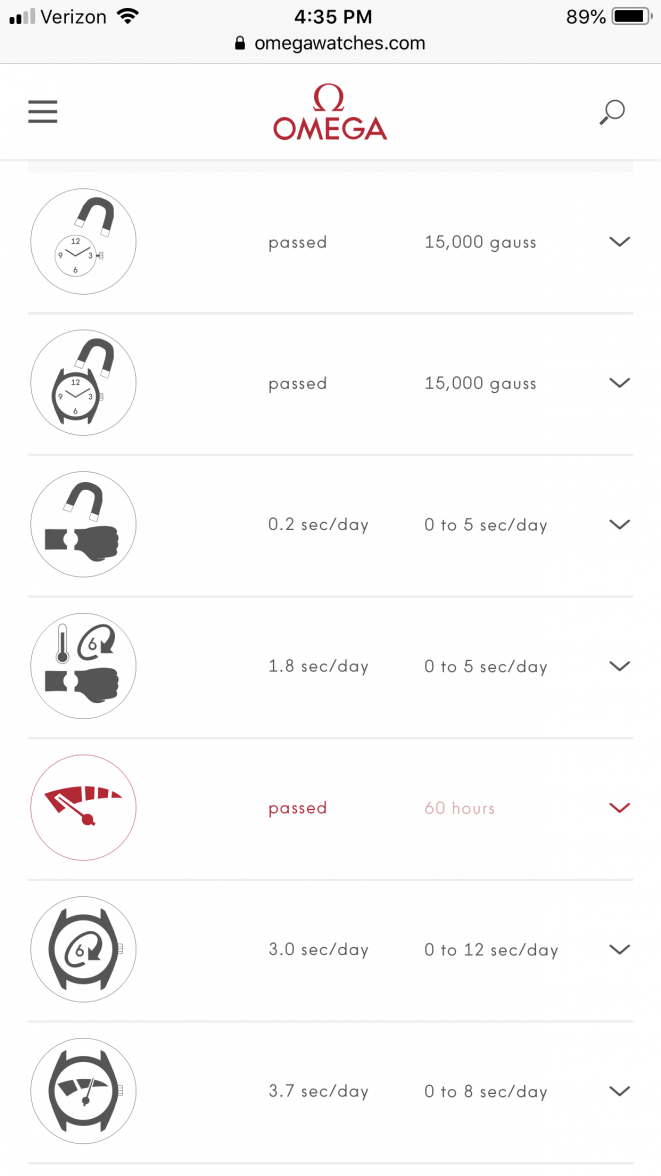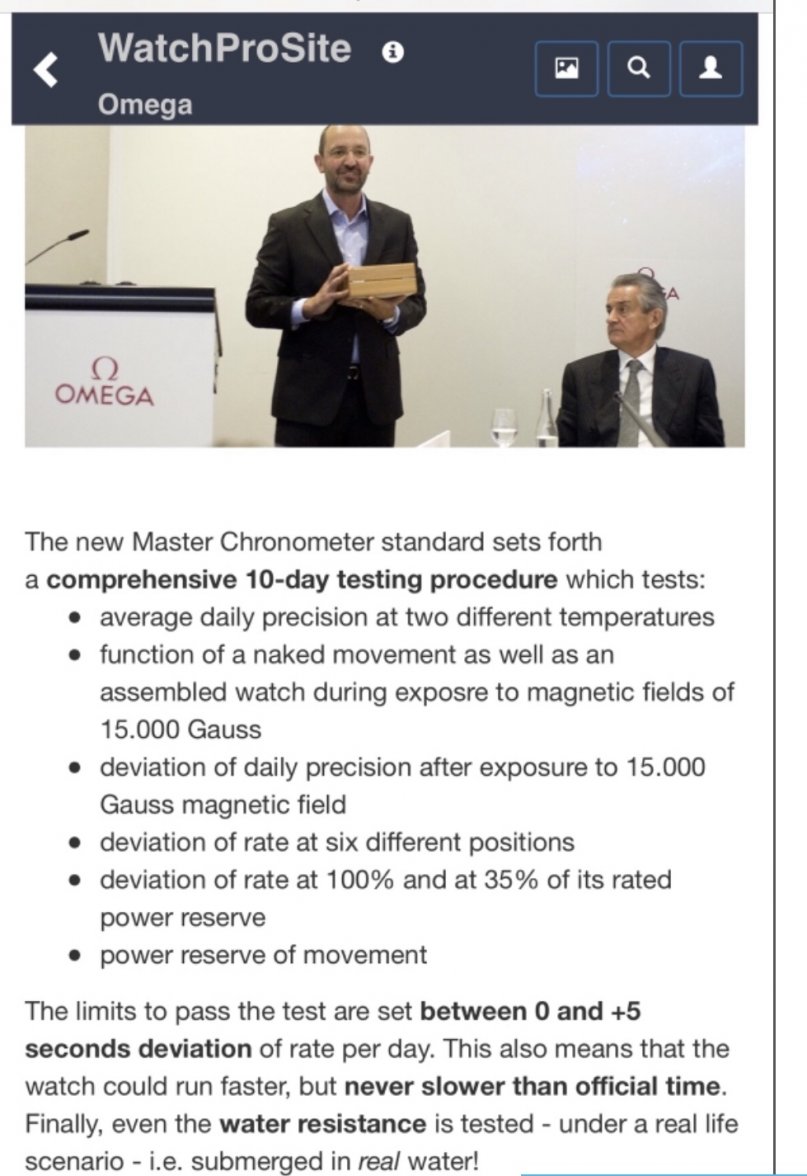POinNY
·I’m looking for some feedback from those who have PO 8900s/8800s and SMP 8800s and notice their watches losing time over 24 hour periods.
I've had a total of 3 Planet Ocean 8900s: two of them were -0.5 and -1 sec per day and one was +1 sec per day. All were bought new. Because two of these lost time after 24 hours, I'm chalking it up those two having much tighter tolerances than the other one that gained. When I registered these watches on the Omega website and looked at the individual performance results, the two watches that lost time over a 24hr period always had an average that was closer to 0, while the one that gained had an average of 4.6 sec per day in a range of 0-5 seconds.
I'm think the loss might be normal because my first PO 8900 that lost time, I sent it over to Omega for diagnostics and testing. They had it for a week and reported that it was within METAS specs, but on my wrist that was never the case. I've seen numerous other people here and watchuseek.com with METAS movements post about how their watches lose time in a 24 hour period, usually ranging from -2 to -0.5. I find it odd because theoretically a METAS movement should never lose time. But I also know that if the watch spends most of its time in a slow position, that will skew the accuracy.
With my latest PO 8900 purchased only a week ago, I notice it'll lose 1.5 seconds over 15 hours of wrist time. When I set it at night, crown up, it'll gain 0.5 seconds back so the total loss over 24 hours is 1 second. I think crown up is the "fast" position for this particular watch, but the only issue is that it doesn't make up for what it lost fast enough. I'm hopeful this will improve since it's still a new watch, but I've been reading that "settling in" and "break in" periods for mechanical watches are just myths.
Is there anyone else with a METAS movement noticing a loss over 24 hours?
I've had a total of 3 Planet Ocean 8900s: two of them were -0.5 and -1 sec per day and one was +1 sec per day. All were bought new. Because two of these lost time after 24 hours, I'm chalking it up those two having much tighter tolerances than the other one that gained. When I registered these watches on the Omega website and looked at the individual performance results, the two watches that lost time over a 24hr period always had an average that was closer to 0, while the one that gained had an average of 4.6 sec per day in a range of 0-5 seconds.
I'm think the loss might be normal because my first PO 8900 that lost time, I sent it over to Omega for diagnostics and testing. They had it for a week and reported that it was within METAS specs, but on my wrist that was never the case. I've seen numerous other people here and watchuseek.com with METAS movements post about how their watches lose time in a 24 hour period, usually ranging from -2 to -0.5. I find it odd because theoretically a METAS movement should never lose time. But I also know that if the watch spends most of its time in a slow position, that will skew the accuracy.
With my latest PO 8900 purchased only a week ago, I notice it'll lose 1.5 seconds over 15 hours of wrist time. When I set it at night, crown up, it'll gain 0.5 seconds back so the total loss over 24 hours is 1 second. I think crown up is the "fast" position for this particular watch, but the only issue is that it doesn't make up for what it lost fast enough. I'm hopeful this will improve since it's still a new watch, but I've been reading that "settling in" and "break in" periods for mechanical watches are just myths.
Is there anyone else with a METAS movement noticing a loss over 24 hours?
Edited:



